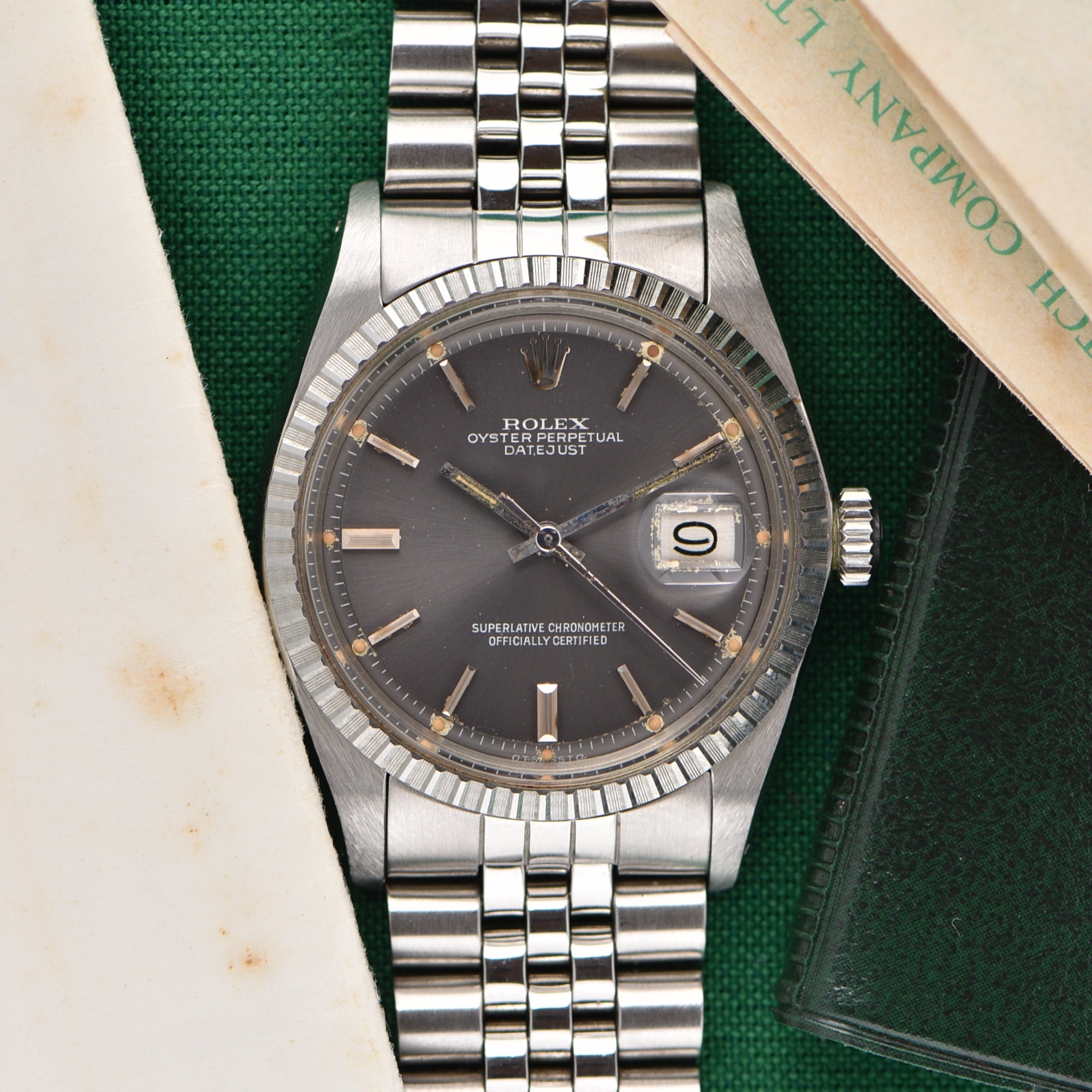
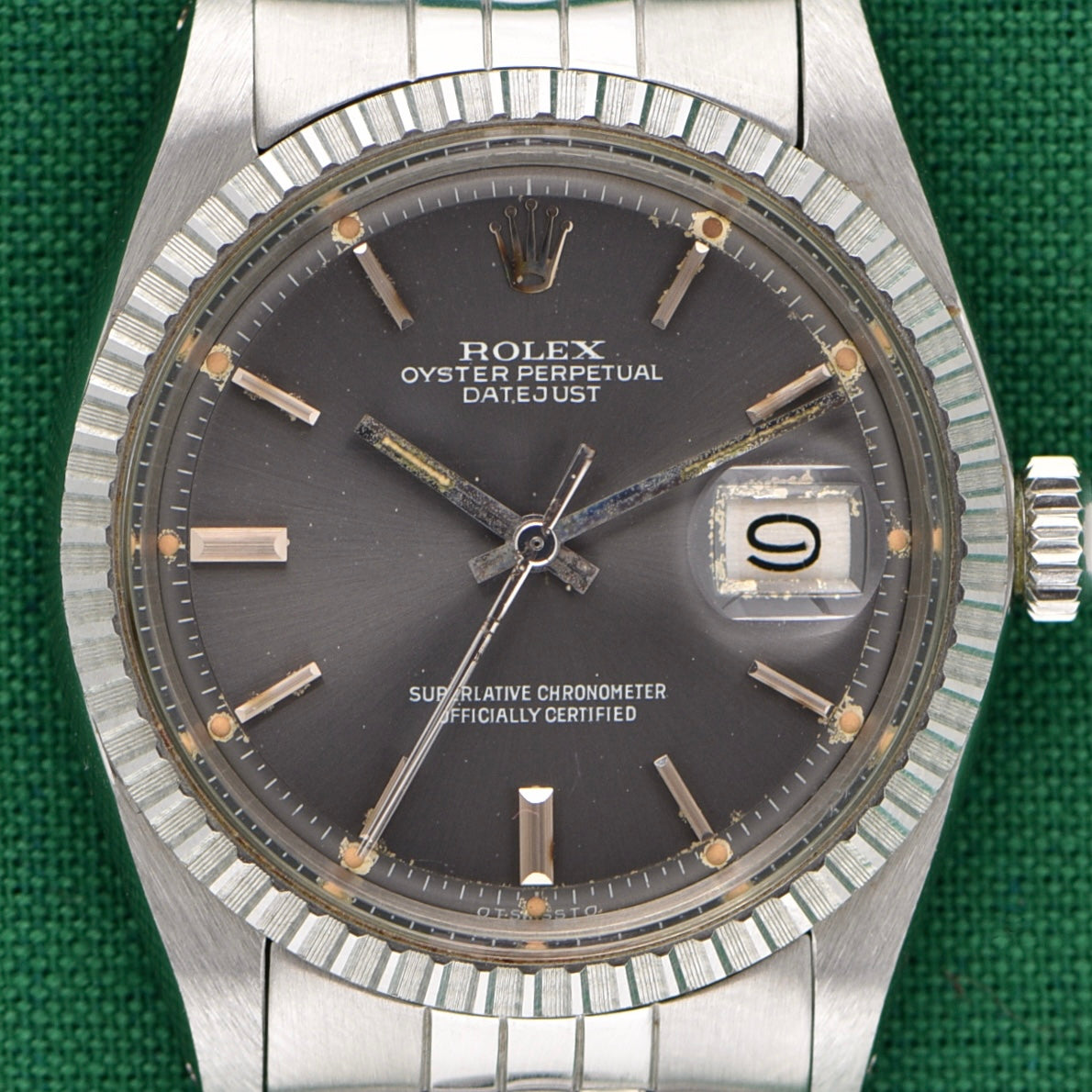
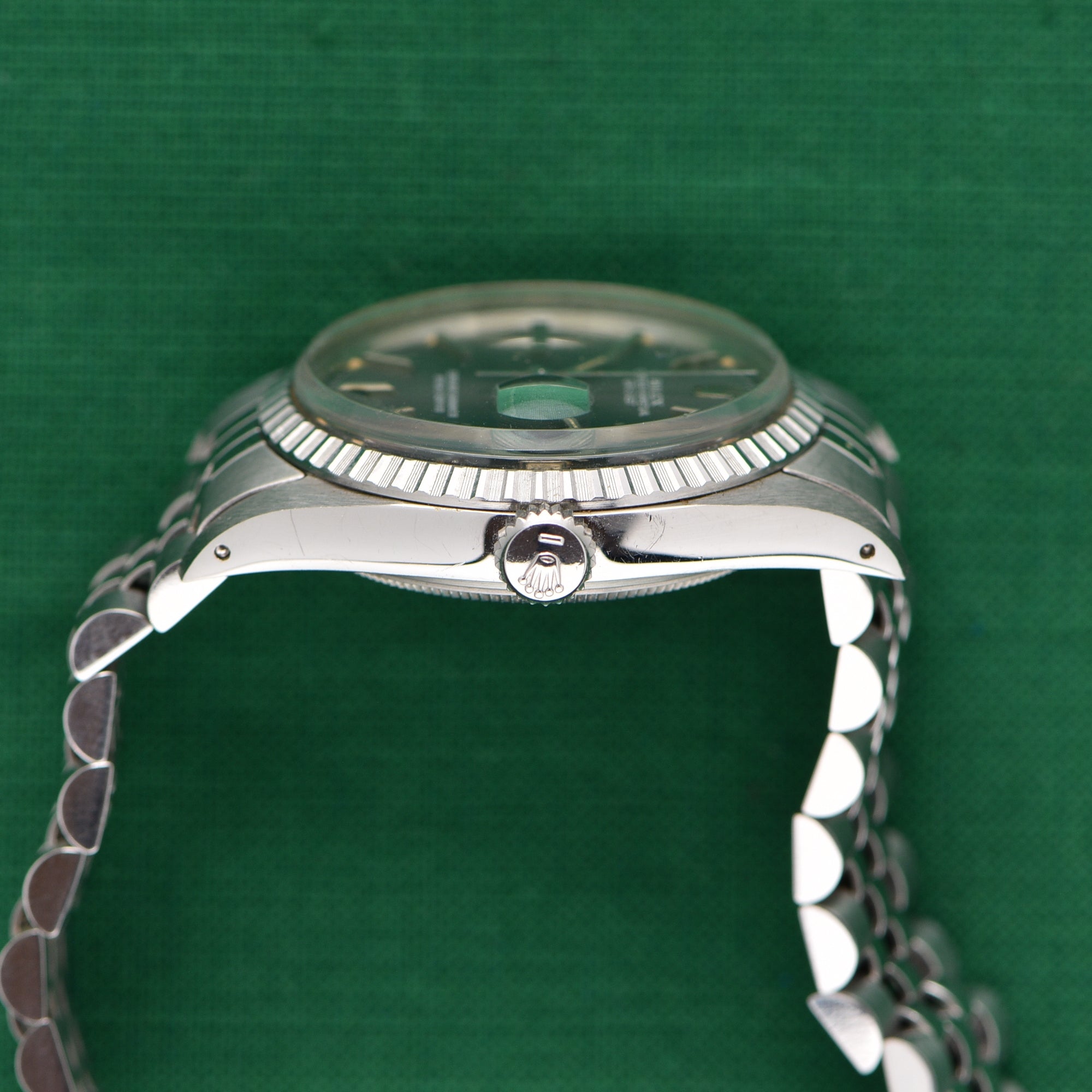
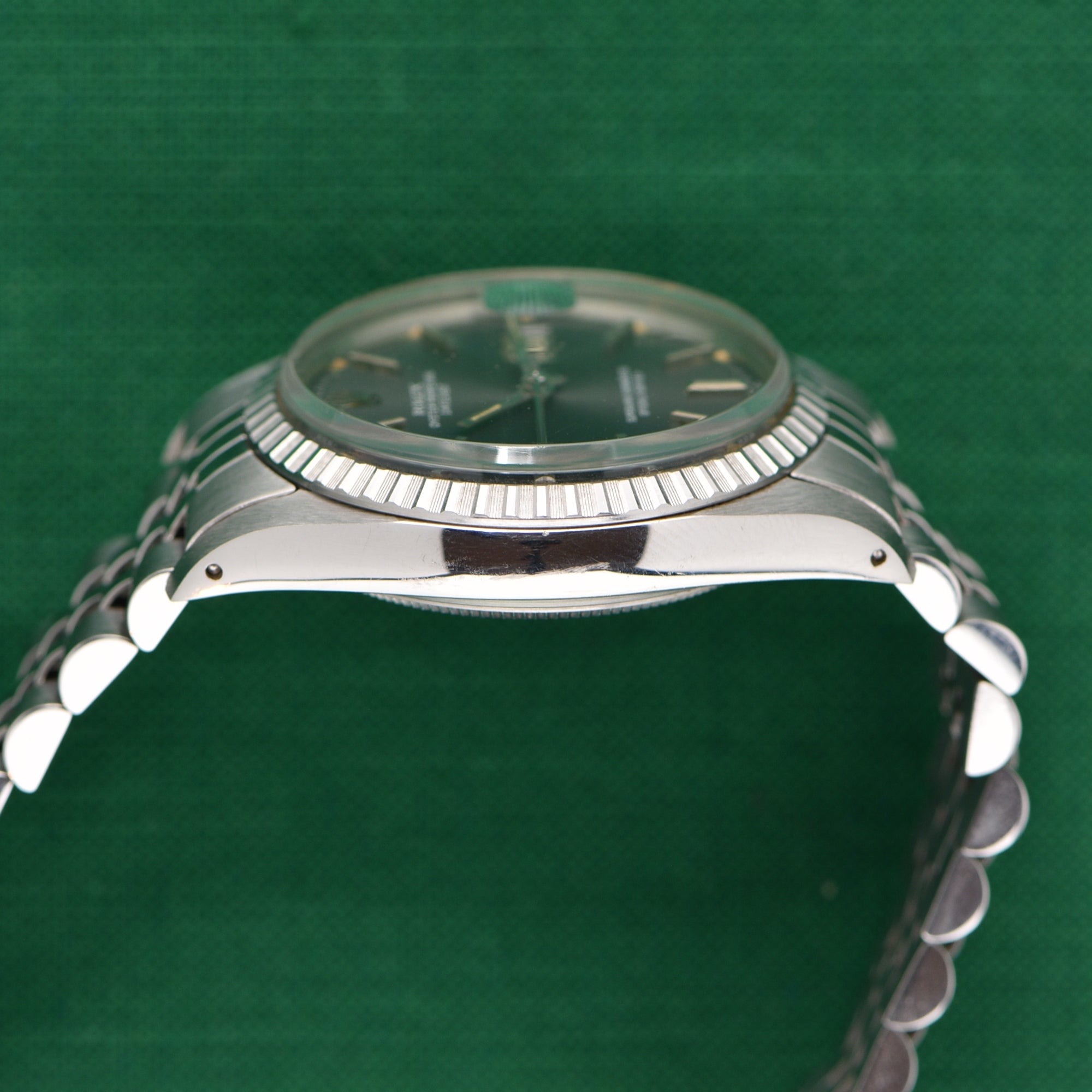
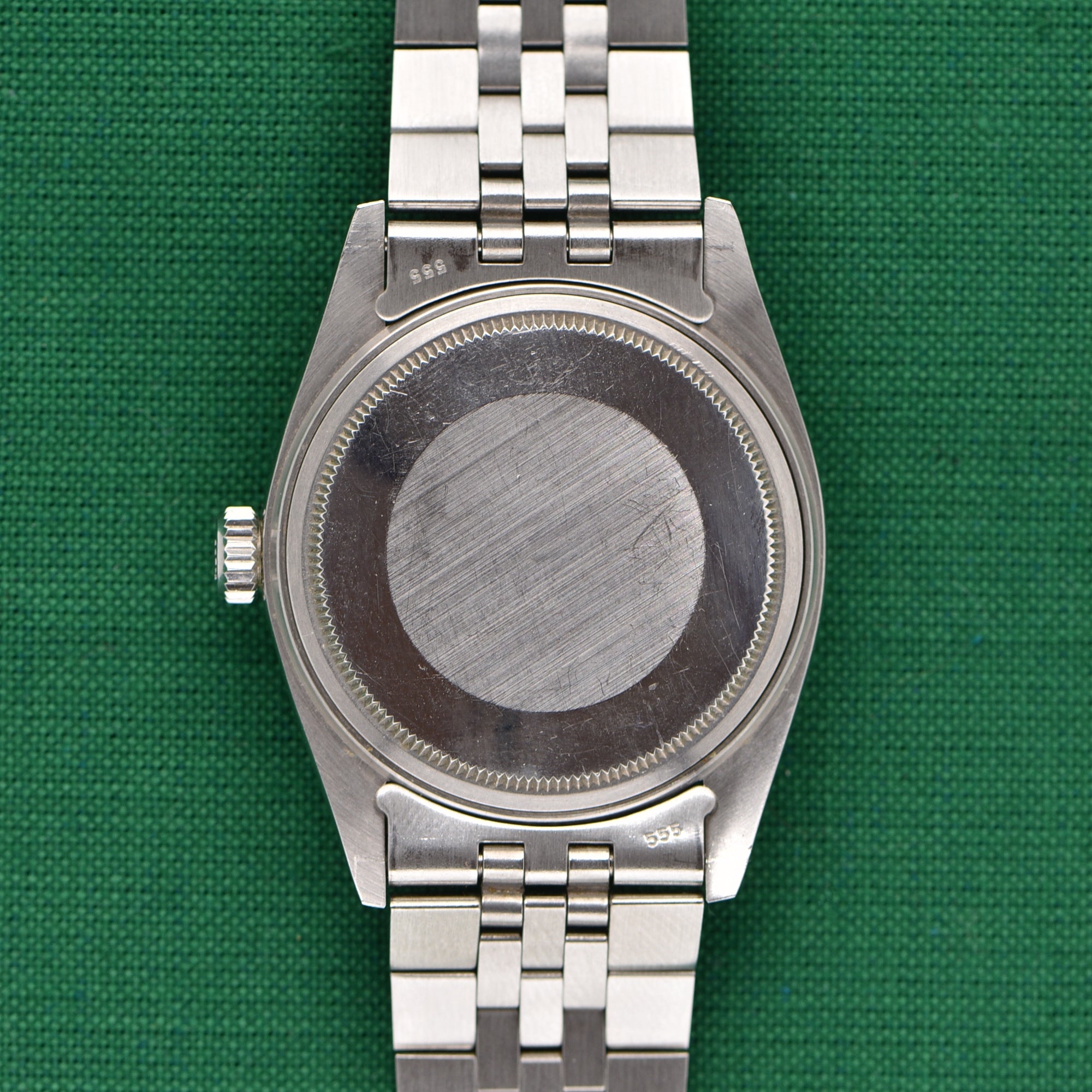
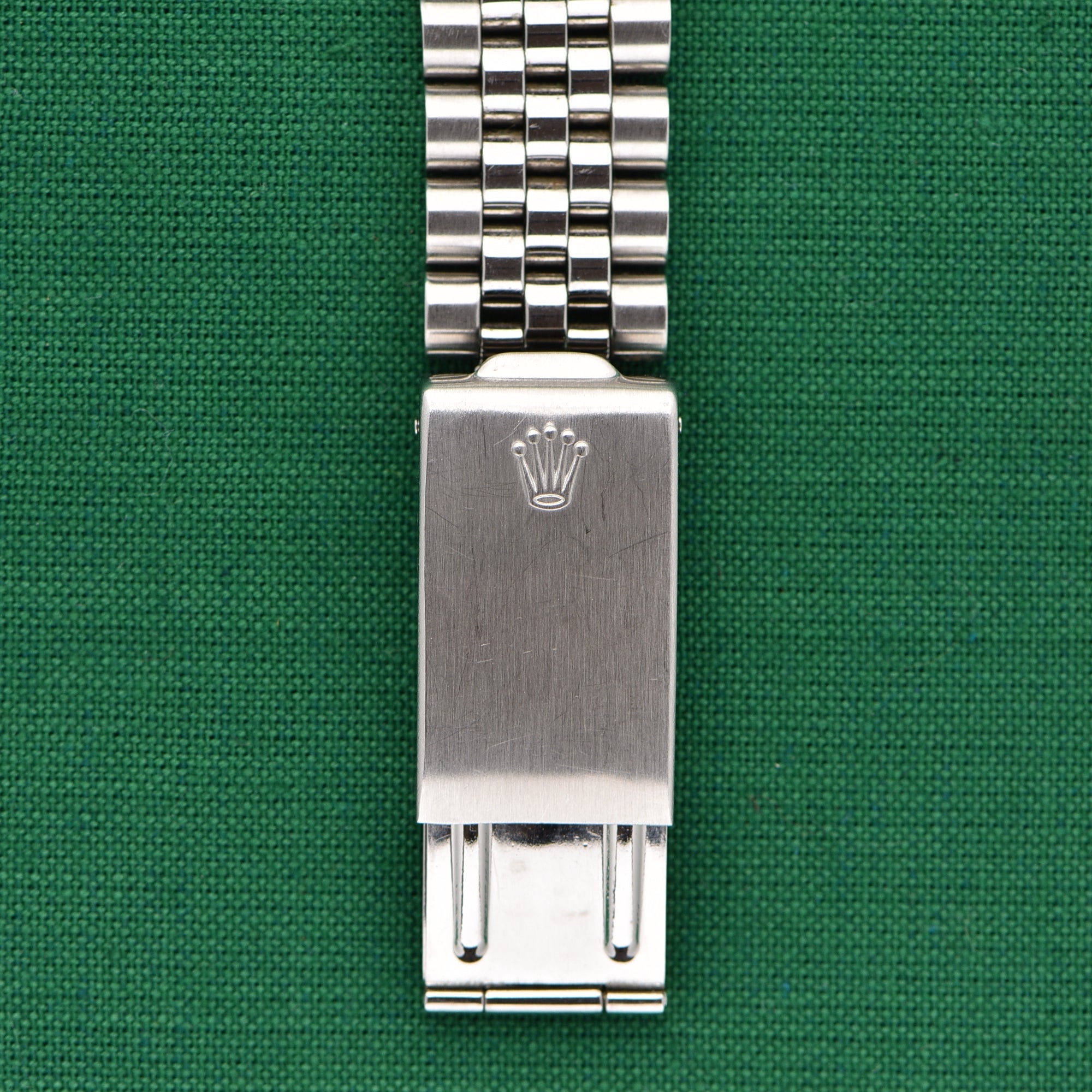
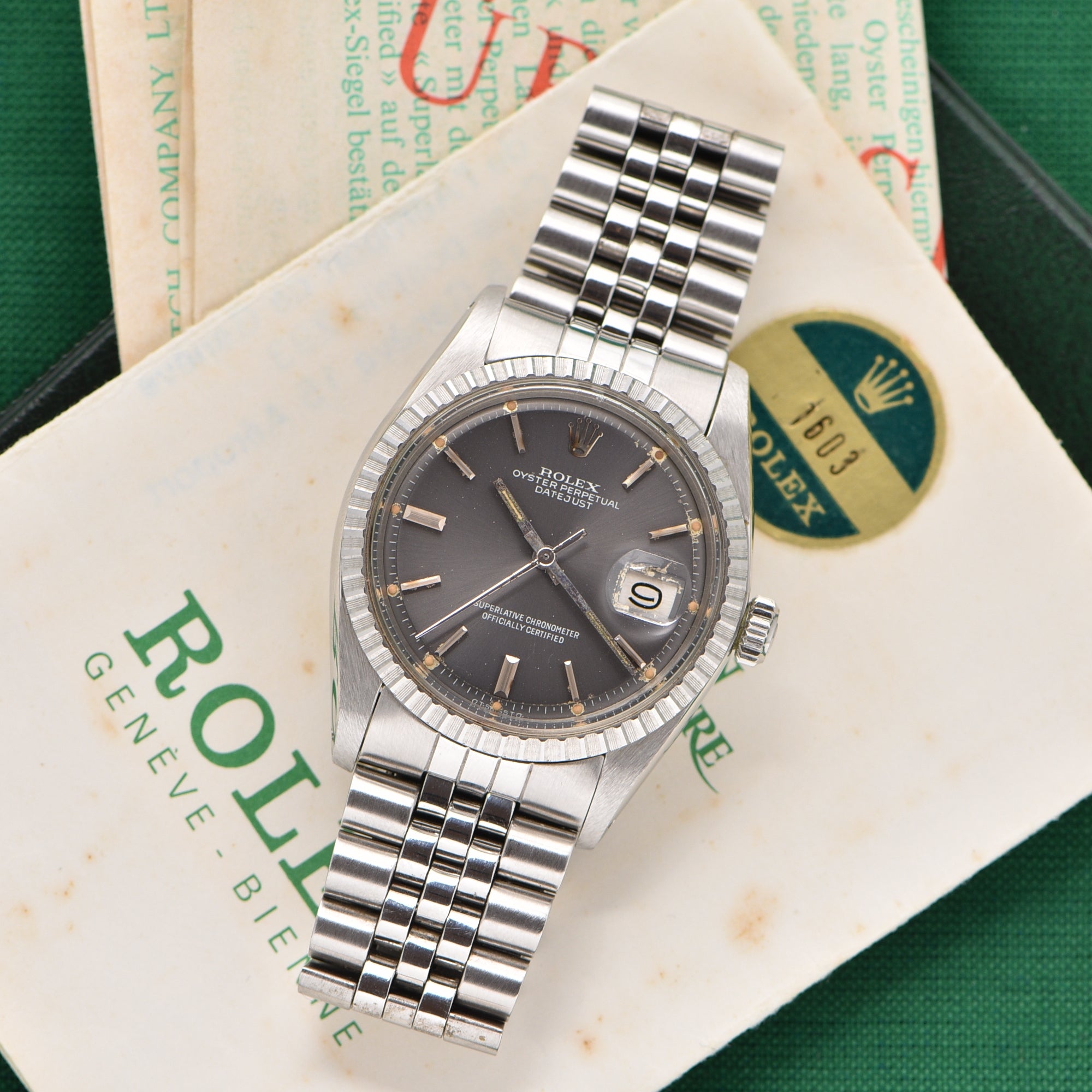
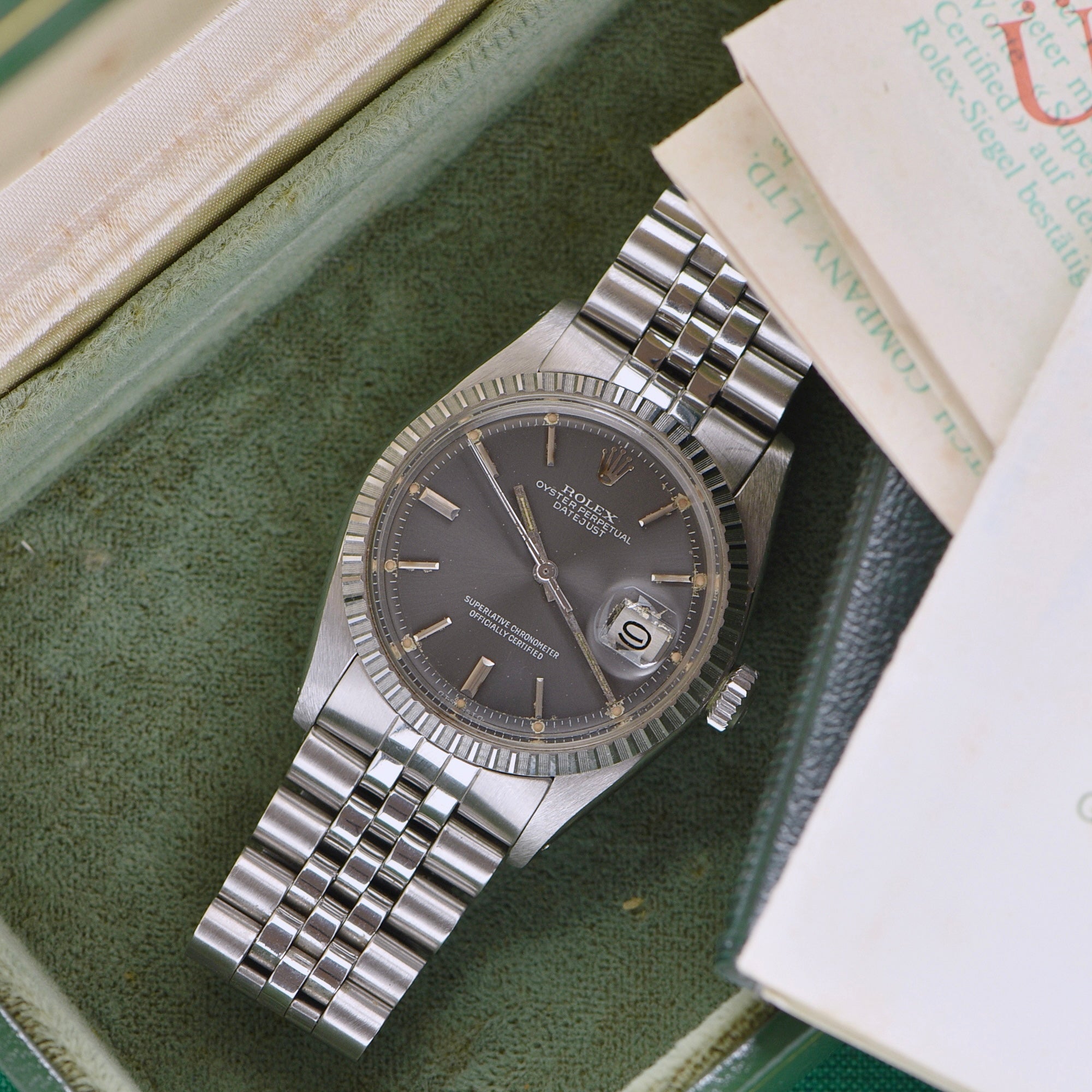
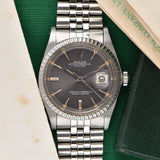
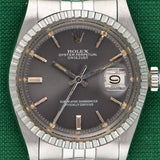
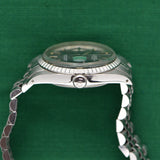
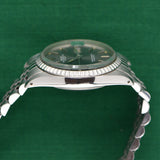
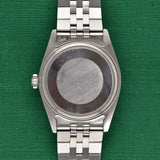
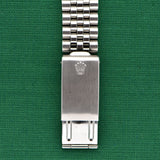
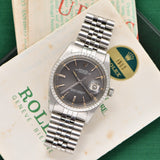
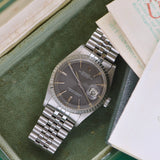
1979 Rolex Datejust Grey Sigma Dial - Box & Papers
- Reference 1603
- Box, Papers, Pamphlet, Paper holder
- Wire Price $4,000
- Specifications
- The Story
- The Brand
Year: 1979
Model: Datejust
Case Diameter: 36mm
Lug to Lug: 43mm
Case: Stainless steel
Condition: No significant wear as seen
Dial: Grey
Movement: Automatic
Condition
The case is very sharp and looks to be unpolished. The bracelet is period correct with clasp code 'B' which is around 1977. It was normal to have a bracelet 1-2 years older than the watch serial. For its age, the case stretch is phenomenal. The dial is a grey sigma dial. The speckling you see is just dust on the crystal. Other than the patina around the lume plots, around the date window, and on the hands, the dial is clean. Also, yes, this is a 4-digit Rolex with original box & papers.
The Rolex Datejust, introduced in 1945, is one of Rolex's oldest collections of watches. It was the world's first self-winding wristwatch with a date window that automatically changed over at midnight. The Datejust was not designed for specific sports, environments, or lifestyle activities, but was a classic and reliable wristwatch with a timeless aesthetic. The original Datejust was available in solid 18k yellow gold, but stainless steel and Rolesor versions became available in the 1950s. The reference 160x series introduced the Caliber 1560 movement, followed by the reference 160xx series in the late 1970s. The reference 162xx series introduced the Caliber 3135 movement, offering better timekeeping, reliability, and convenience. The Datejust II introduced a 41mm version in 2009, but the 41mm Datejust II did not immediately catch on. The Datejust 41 continues to be in production today, available in various metal combinations and with more dial, bezel, and bracelet options than any other Rolex watch line.
Wilsdorf & Davis was initially a watch importer, but by 1908, Wilsdorf had registered 'Rolex' as a trademark. The name was chosen after trial and error, with some believing it was taken from the phrase 'horological Excellence' or because the word sounds like a watch being wound. Wilsdorf was aware of the power of branding and began a long campaign to get the new company name on the watches he exported. The relationship between Rolex and Aegler started the same year that Wilsdorf & Davis set up the business, placing the largest order for wristwatches ever seen. Wilsdorf was attracted by Aegler's commitment to the highest quality, as their movements were extremely accurate and small. In 1910, one of Rolex's models won a First Class Chronometer Certificate from the rating office in Bienne, Switzerland, and in 1914, another piece became the first ever wristwatch to be granted a Class A Chronometer Certificate from the Kew Observatory in England, the only non-marine timepiece to ever achieve it. The firm of Wilsdorf & Davis became synonymous with a commitment to uncompromising excellence.
WWI in 1914 led to the rebranding of Wilsdorf & Davis as Rolex in 1915. The British government imposed a 33.3% tax on luxury goods, forcing Rolex to relocate to Bienne. Despite the war, the wristwatch proved its utility, as it was used by soldiers during combat and in the field. Rolex produced trench watches, using Aegler's small movements for wearability. By the end of the war, wristwatches became a utilitarian accessory for men. In the years between the wars, Rolex asserted its independence, partnering with Carl F. Bucherer to resist the Federation of Swiss Watch Manufacturers. In 1926, Rolex introduced the Oyster case, making wristwatches waterproof, dustproof, and robust. Wilsdorf capitalized on this innovation by installing Rolex Ambassadors, or 'Testimonies', with celebrities as a marketing masterstroke.
During WWII, Switzerland retained its neutrality, meaning that it was one of the few countries not forced to shut down watch manufacturing to supply the war effort. As a result, by the end of hostilities, the Swiss watch industry was way ahead of other nations. Rolex truly came of age in the 1950s by launching some of the most enduring legends in watchmaking, such as the Explorer, Submariner, GMT-Master, Day-Date, and Milgauss.
The quartz crisis of the 1970s and 80s forced the company to change tactics but ultimately repositioned itself as the purveyor of the ultimate luxury lifestyle. Today, the name Rolex is synonymous with refinement, opulence, and personal accomplishment. The Rolex brand as we know it today is the byproduct of an unrelenting drive for excellence and over a hundred years of refinement and development, all in pursuit of the brand’s singular goal of making the world’s best wristwatch.
1979 Rolex Datejust Grey Sigma Dial - Box & Papers
Authenticity Guaranteed
All our watches are carefully inspected to insure and guarantee the authenticity.
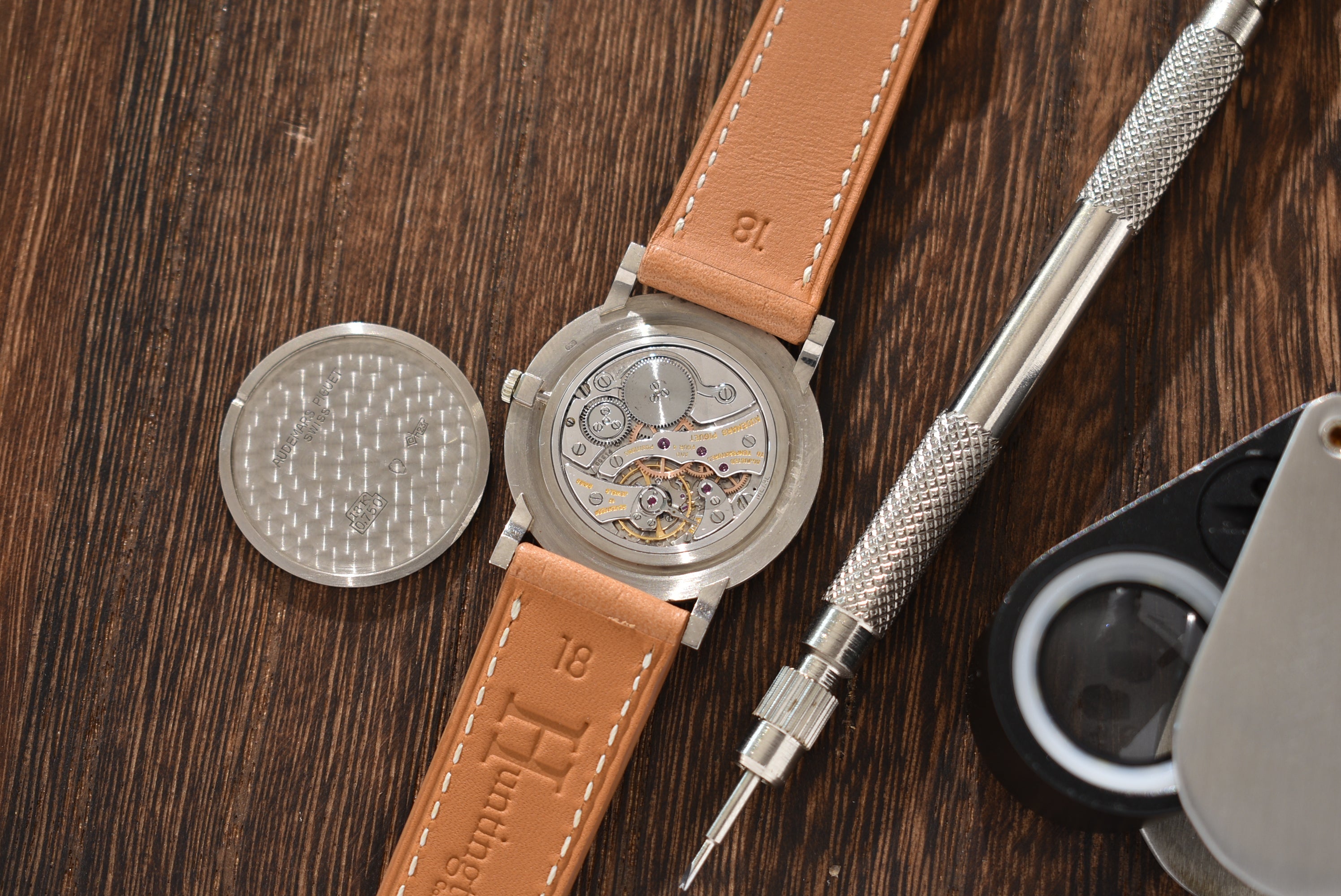
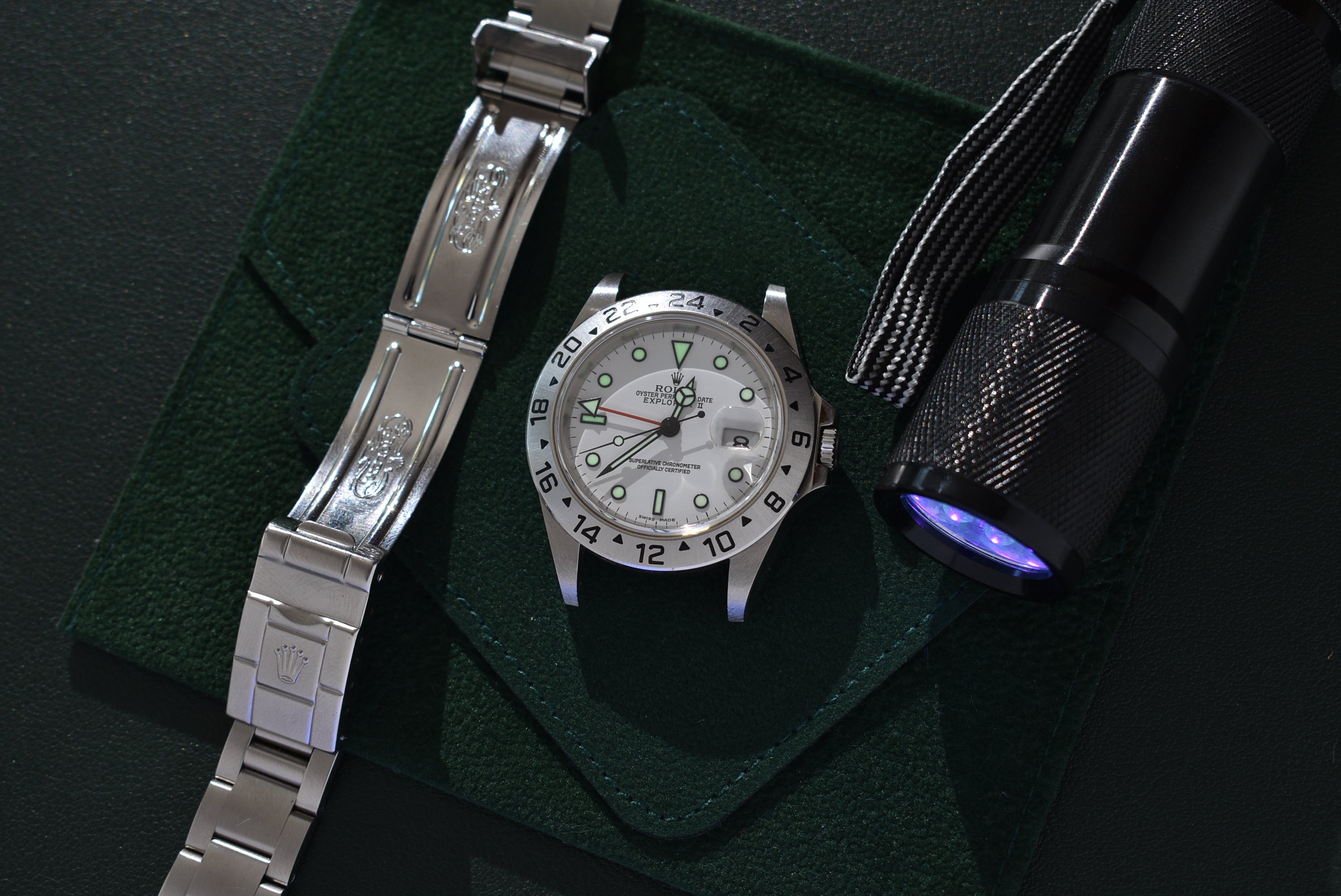
The Details
All our watches are scrutinized during inspection to make sure our descriptions are as accurate as possible.
- Related products
- Recently viewed
